As part of activities marking the cervical cancer awareness month, Reproductive health experts and some journalists, members of the Cameroon Association of English Speaking Journalists, CAMASEJ Yaounde chapter met on Friday, 13th January 2023 in Yaounde.
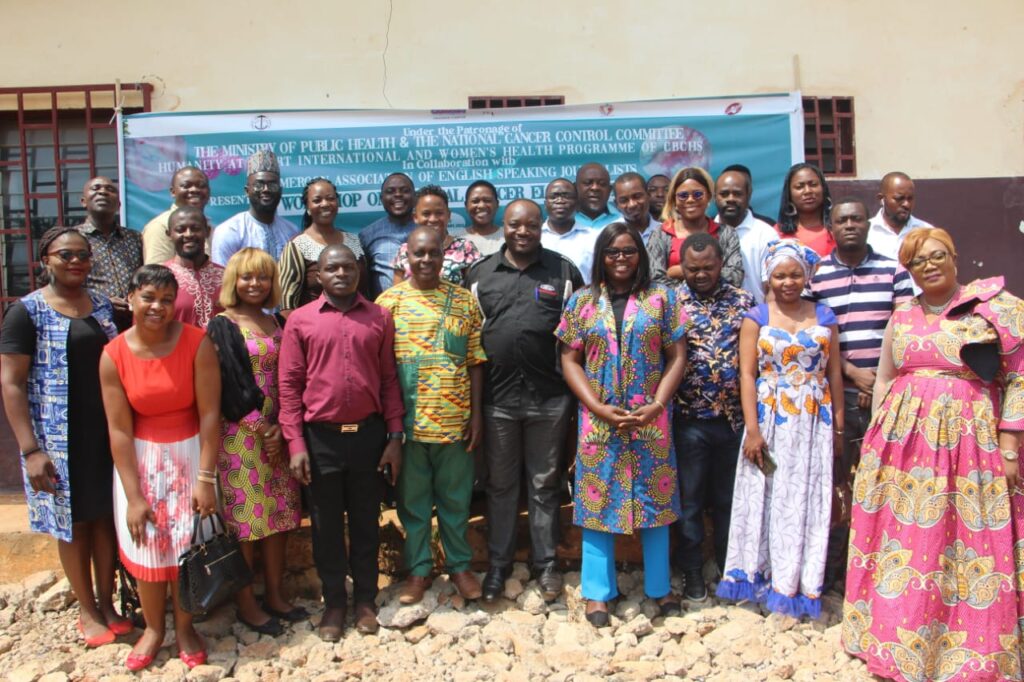
“We want cervical cancer to be known for its elimination. And for the first time in the history of mankind, the World Health Organization has come up with strategies that we can use to eliminate cancer. This is very important and one of the reasons why we hold this workshop. We want to make people get informed and we want to let people know that after they are informed, they should go for screening and vaccination. Because through screening and vaccination, you can eliminate cervical cancer.”
This is one of the key objectives outlined during the one-day cervical cancer elimination workshop held on Friday 13th of January 2023 in Yaounde.
Placed under the banner of the Ministry of Public Health and facilitated by the National Cancer Control Committee(NCCC), Humanity at Heart International(HAHI) and the Women’s Health Programme of the CBC Health Services (WHP-CBCHS) in collaboration withthe Cameroon Association of English Speaking Journalists, CAMASEJ Yaounde chapter, this workshop was an opportunity to upskill media practitioners on cervical cancer which is a silent killer.
During the said workshop, it was disclosed that the month of January is dedicated to cervical cancer awareness campaigns and though little known by many, cervical cancer is the fourth most common cancer in women worldwide.
Florence Manjuh, Head of the WHP-CBCHS who made an overall presentation on the epidemiology of cancer, said cervical cancer is the fourth leading cause of death among women and every two minutes a woman dies of cervical cancer.
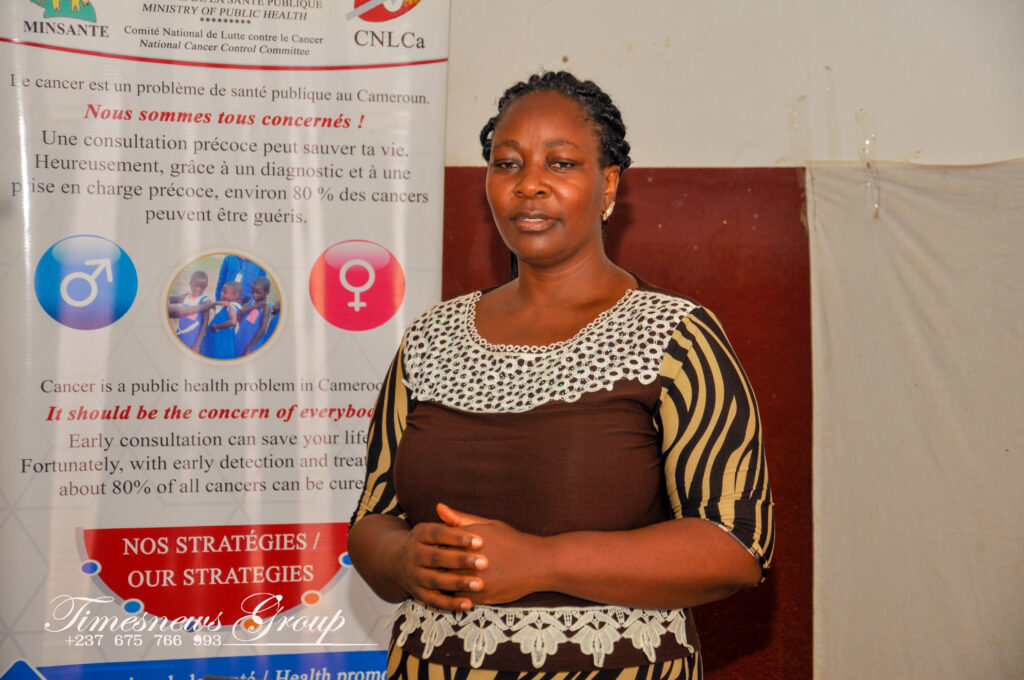
In Cameroon, as outlined by the Health expert, it is the second most common cancer. Five in eight women are diagnosed every day with cervical cancer which is a great threat to the lives of women in the country.
According to Florence Manjuh, one of the main reasons why there is a high rate of cervical cancer in Africa and Cameroon in particular, it is due to ignorance and poverty.
“Many people are not aware that something like cervical cancer exists. The next one we think of is poverty. When few even come to know that there is cervical cancer, going for screening is very difficult and taking their daughters for vaccination is equally difficult. We are grateful that some organizations are doing free screening for women and the government has come with some vaccination options which are free for young girls and boys.” She said.
In the same vein, Eveline Tata Mayaah, Executive Director of Human at Heart International said the burden keeps increasing in Cameroon and stated in her presentation that, in 2018, out of 2,356 new cases, 1546 deaths were recordedand in 2020, out of 2,770 new cases registered, there was a total of 1878 deaths.
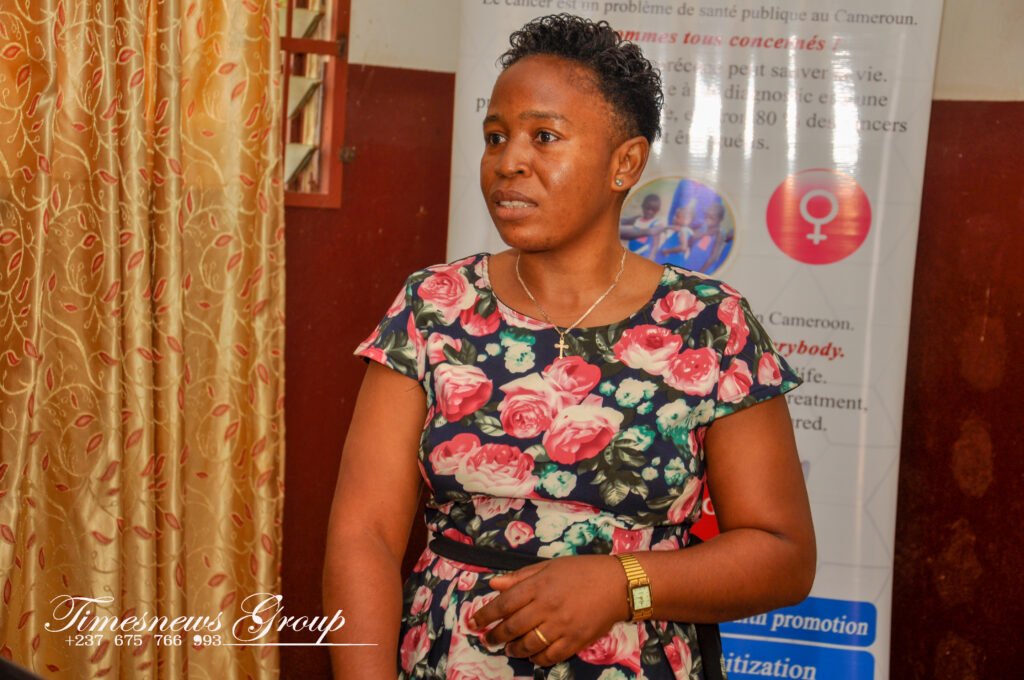
She noted that these quite alarming statistics, could be attributed to late-stage presentation; inadequate information (low awareness levels); poor screening coverage; poor access to existing screening, diagnosis and treatment services; stigma; poor health-seeking behaviours and lack of political will.
The challenges are very huge and there is a necessity to boost communication on this public health issue as Mrs Tata Mayaah outlined.
“In rural communities, there are a lot of barriers, the first one is the distance to health services and also we have poor awareness creation, we have low health literacy in communities because we don’t have people who descend to the rural suburbs to create awareness. Therefore, we take on ourselves at Humanity at Heart International in partnership with the women’s health programme of CBCHS to go into these communities to improve the level of knowledge about cervical cancer and make sure that these rural women, their husbands and children get screened and vaccinated.” She narrated.
Health advocate and Executive Director of HAHI insisted on effective advocacy as one of the key responses to this preventable and curable disease. Yet, the main constraint as she pointed out is lack of finance which most of the time cripples efforts undertaken.
Eveline Tata Mayaah said: “When you create awareness they need to move to a health facility to get screened and there, they have to pay for that screening. And you see that it is not easy for a rural woman, not talking of an average Cameroonian who cannot afford a 10,000FCFA to get screened. Also, the health systems in rural communities are not robust. It is a constraint for them to have these sophisticated facilities to get and so they need to travel long distances to get in touch with facilities that have appropriate tools to get them screened.”
In her presentation, she went further to explain the WHO’s call for action known as the 90-70-90 targets which state that: 90% of girls are fully vaccinated with the HPV vaccine by the age of 15 years; 70% of women are screened with a high-performance test by 35 years of age and again by 45 years of age; 90% of women identified with the cervical disease receive treatment i.e. 90% of women with precancer treated, and 90% of women with invasive cancer managed.
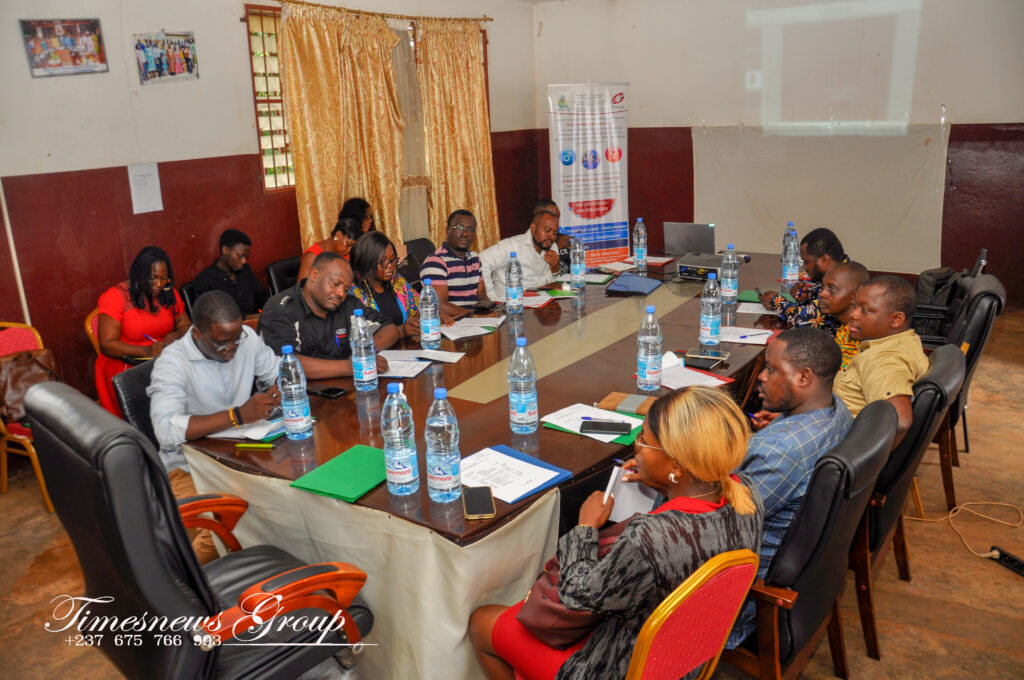
Mrs. Tata Mayaah who today leads the association Humanity at Heart International in Tiko, South West region of Cameroon is an advocate for change due to unforeseen circumstances.
She told media participants: “I lost my mother in 2013 to cervical cancer. So, I became curious about what cervical cancer was all about. I was pursuing a different profession and when she died I began indulging in researching and studying cervical cancer. I came to realize that she died of something that was preventable and could be treated if it was captured early enough. I decided to do advocacy to make sure that everyone becomes fully engaged in creating awareness, in making sure that women get screened and are treated early enough if they are diagnosed with precancerous lesions.”
She fervently believes many socio-cultural and religious beliefs could be broken down with the media as a partner in her association.
“We have to change the narratives and give the right information to our communities through journalists.” Eveline Tata said.
In terms of cervical cancer prevention, Reproductive health specialist, Dr Manga Simon said there is primary prevention which involves the use of the HPV vaccine and lifestyle modification to minimize the risk of exposure to the Human Papillomavirus (HPV) and secondary prevention which has to do with screening; identifying precancerous lesions and treating them so that they don’t progress.
Dr Manga stress on the fact that vaccination at an early age remains a crucial prevention from the Human Papilloma Virus, HPV which is a disease contracted and leading to the cause of cervical cancer.
Speaking on behalf of the Permanent Secretary of NCCC, Dr Yaya Hadam, public health specialist said thanks to the partnership sealed with the media through associations like CAMASEJ Yaounde chapter several sensitization campaigns will be intensified to alarm people on the need to get screened at early stages.
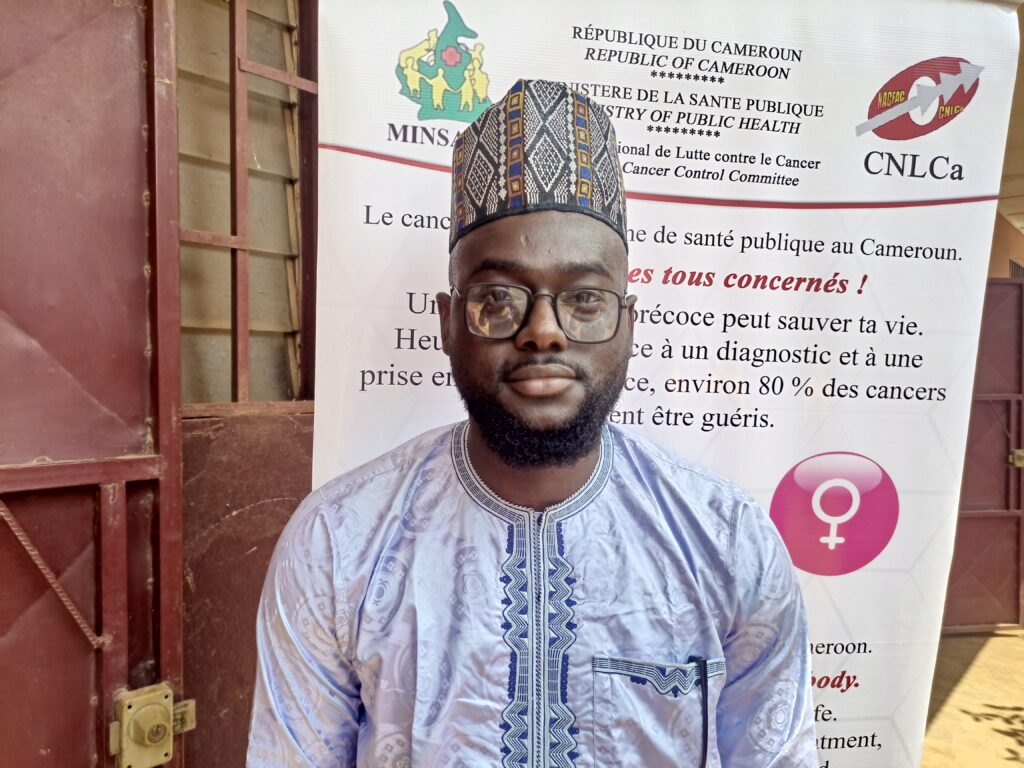
He added that, just like breast cancer which is widely known, the NCCC has put in place activities to create more awareness of cervical cancer.
Elise Kenimbeni cervical



